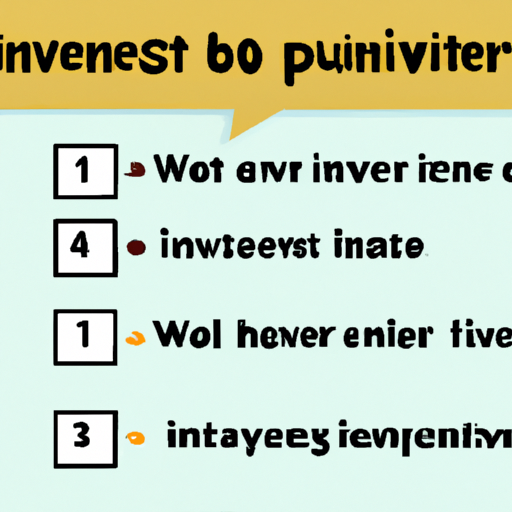Behavioral interview questions have become an essential part of the recruitment process across diverse industries. With employers increasingly seeking not only technical expertise but also a candidate’s ability to handle various situations, it has become vital for job seekers to prepare meticulously for these interviews. Behavioral questions are specifically designed to assess an individual’s past behaviors and experiences, providing valuable insights into how they may perform in the future. In this article, we will explore the significance of behavioral interview questions, their advantages for employers and candidates, as well as provide useful strategies for effectively tackling these inquiries. By understanding the underlying principles of behavioral interviewing, readers will be well-equipped to navigate these discussions with confidence and showcase their qualifications in the most compelling manner.
Table of Contents
- Understanding Behavioral Interview Questions
- Key Features of Behavioral Interview Questions
- The Importance of Behavioral Interview Questions
- How to Prepare for Behavioral Interview Questions
- Strategies for Answering Behavioral Interview Questions
- Examples of Effective Responses to Behavioral Interview Questions
- Common Mistakes to Avoid in Behavioral Interviews
- Tips to Improve Your Performance in Behavioral Interviews
- To Conclude

Understanding Behavioral Interview Questions
Behavioral interview questions
Behavioral interview questions are commonly used by employers to assess a candidate’s past behavior and predict their future performance. These types of questions aim to go beyond the traditional interview questions that focus on skills and qualifications, and delve into a candidate’s personal experiences and how they have handled various situations in the past.
- Why are behavioral interview questions used? Employers use behavioral interview questions to gain deeper insights into a candidate’s thought process, problem-solving abilities, and interpersonal skills. By understanding how a candidate has behaved in the past, employers can better assess their suitability for a role and how well they might fit into the company culture.
- How do I prepare for behavioral interview questions? Thorough preparation is key to effectively answering behavioral interview questions. Start by reviewing the job description and identifying the key competencies and skills required for the position. Then, reflect on your past experiences and think of specific examples that demonstrate your ability to handle challenging situations, collaborate with others, and showcase your achievements. Finally, practice articulating your responses concisely and confidently, keeping in mind the STAR method (Situation, Task, Action, Result) to structure your answers.

Key Features of Behavioral Interview Questions
When conducting a job interview, employers often turn to behavioral interview questions to gain insight into a candidate’s past experiences and behaviors. These types of questions are designed to provide a more comprehensive understanding of how an individual may perform in a specific role or situation. By focusing on patterns of behavior and real-life examples, employers can assess a candidate’s ability to handle challenges, work well within a team, and demonstrate key skills. Here are some :
- Open-ended: Behavioral interview questions are typically open-ended, allowing candidates to provide detailed responses that showcase their thought processes and decision-making abilities.
- Situational: These questions often present scenarios or situations that candidates may have encountered in the past, allowing employers to evaluate their problem-solving skills and how they handle specific challenges.
- Past-focused: The main purpose of behavioral interview questions is to uncover a candidate’s past behaviors and experiences, as they are often seen as indicators of future performance.
- Data-driven: Answers to behavioral interview questions are based on real-life examples, providing concrete evidence of a candidate’s skills and abilities.
By utilizing behavioral interview questions, employers can gain valuable insights into a candidate’s past experiences, skills, and behaviors. This approach allows for a more objective evaluation of a candidate’s fit for a particular role or company culture. Furthermore, behavioral interview questions provide candidates with an opportunity to showcase their abilities and competencies in a structured and meaningful way, enabling employers to make more informed hiring decisions.

The Importance of Behavioral Interview Questions
Behavioral interview questions have become increasingly prevalent in the hiring process across various industries. These types of questions focus on a candidate’s past experiences and behaviors to assess their suitability for the role. lies in their ability to provide valuable insights into a candidate’s skills, abilities, and potential fit within a company.
One key benefit of utilizing behavioral interview questions is that they go beyond simple resume qualifications and theoretical knowledge. By asking candidates to describe specific situations and how they handled them, employers can gain a deeper understanding of their problem-solving abilities, interpersonal skills, and decision-making processes. Additionally, behavioral interview questions allow employers to evaluate a candidate’s cultural fit for the organization, as they provide a glimpse into how the candidate may navigate real-life scenarios within the company’s values and ethos.
Moreover, behavioral interview questions help employers identify candidates who possess essential soft skills such as adaptability, teamwork, communication, and leadership. These questions require candidates to reflect on their experiences, enabling interviewers to assess a candidate’s ability to learn from past situations and apply that knowledge to future challenges. Through these questions, employers gauge a candidate’s level of self-awareness, resilience, and emotional intelligence, which are often strong indicators of success in a professional setting.
To effectively incorporate behavioral interview questions into the hiring process, employers should carefully design questions that delve into specific competencies and desired behaviors. By utilizing the STAR method (Situation, Task, Action, Result), employers can structure questions that prompt candidates to provide clear examples of their experiences and actions. This method allows for a consistent and objective assessment of candidates, enabling employers to compare responses and make informed hiring decisions.
In conclusion, cannot be overstated. They provide unique insights into a candidate’s abilities, personality, and cultural fit, going beyond the surface-level information typically found on a resume. By incorporating these questions into the hiring process, employers can more effectively evaluate the potential of candidates and make informed decisions that contribute to building a successful and cohesive team.
How to Prepare for Behavioral Interview Questions
Preparing for behavioral interview questions is essential to help you stand out as a candidate for a job. These types of questions focus on your past experiences and behavior, aiming to assess how you handle different situations and challenges. To excel in a behavioral interview, it’s important to be well-prepared and confident. Here are some steps you can take to effectively prepare for behavioral interview questions:
- Research the company: Before the interview, thoroughly research the company’s values, culture, and mission. This will help you understand what qualities and skills they prioritize, and enable you to tailor your responses accordingly.
- Identify key competencies: Go through a list of common behavioral interview questions and identify the key competencies or skills that the questions are designed to evaluate. These can include problem-solving, teamwork, leadership, adaptability, and communication skills, among others.
- Reflect on past experiences: Take some time to reflect on your past experiences and identify situations that demonstrate each of the key competencies. Think of examples where you successfully resolved conflicts, achieved goals, or overcame challenges. This will help you formulate strong, concrete responses during the interview.
In addition to these steps, it is vital to practice your responses to common behavioral interview questions. This will help you articulate your experiences clearly and concisely during the actual interview. Remember to use the STAR method (Situation, Task, Action, Result) when structuring your responses, as it allows you to provide a comprehensive and organized answer. Above all, be yourself and stay calm throughout the interview. By adequately preparing for behavioral interview questions, you can boost your chances of impressing the interviewer and landing your desired job.
Strategies for Answering Behavioral Interview Questions
Understand the STAR Method: The STAR method is an effective framework for answering behavioral interview questions. It stands for Situation, Task, Action, and Result. By structuring your answers using this method, you can provide clear and concise responses that showcase your skills and experiences.
Research Common Behavioral Questions: Before your interview, take the time to research common behavioral interview questions. This will help you prepare and come up with compelling examples from your past experiences that align with the skills and qualities the interviewer is looking for. Some common questions include “Tell me about a time when you had to handle a difficult situation with a coworker” or “Describe a project you worked on that required strong problem-solving skills.”
Examples of Effective Responses to Behavioral Interview Questions
Behavioral interview questions are designed to assess how a candidate handles specific situations, providing insights into their skills, behaviors, and problem-solving abilities. In order to excel in a behavioral interview, it is essential to prepare effective responses that highlight your unique experiences and qualities. Here are some examples of exemplary responses to behavioral interview questions:
- Leadership: When asked about a time you displayed leadership skills, recount a situation where you took charge and successfully led a team towards a common goal. Emphasize your ability to delegate tasks, listen to team members, and motivate others through clear communication, resulting in the achievement of the project objectives.
- Problem-solving: Showcase your problem-solving abilities by narrating a scenario where you encountered a challenging situation. Describe how you systematically approached the problem, gathered relevant information, analyzed different options, and ultimately implemented a creative solution. Focus on the positive outcome achieved and how your critical thinking skills contributed to resolving the issue.
- Adaptability: Demonstrate your adaptability by discussing a time when you faced unexpected changes or encountered a difficult situation. Detail the steps you took to remain calm, flexible, and open to new ideas or approaches. Discuss how you effectively adjusted your plans, handled any setbacks, and ultimately achieved success despite the challenges.
By utilizing these examples and tailoring your responses to match your own experiences, you can effectively showcase your abilities during behavioral interviews. Remember to provide specific examples, demonstrating your skills through real-life situations, and always tie your responses back to the desired qualities sought by the interviewer. Preparing thoughtful and well-crafted responses will greatly increase your chances of making a lasting impression on potential employers.
Common Mistakes to Avoid in Behavioral Interviews
In behavioral interviews, candidates are often asked situational questions that require them to provide specific examples of how they have handled certain situations in the past. While these interviews can be challenging, being aware of common mistakes can help you navigate them successfully. Here are some key pitfalls to avoid:
- Providing vague or general responses: One of the most common mistakes candidates make in behavioral interviews is failing to provide detailed and specific answers. When asked about a specific situation, it is important to provide a clear and concise response that showcases your abilities and experiences. Sharing specific examples and outcomes will demonstrate your skills effectively.
- Forgetting to prepare: Preparation is crucial for success in behavioral interviews. Candidates often make the mistake of not adequately preparing for these types of questions, assuming they can rely on their ability to think on the spot. To avoid this, spend time researching common behavioral interview questions and preparing thoughtful responses that highlight your skills and experiences. This will ensure you are well-equipped to answer any question that comes your way.
- Lacking self-awareness: Another common mistake is a lack of self-awareness when answering behavioral questions. It is important to recognize your strengths and weaknesses and be able to articulate them honestly. Avoid exaggerating or downplaying your abilities, and instead focus on providing genuine insights into your past experiences and how they have shaped you.
Tips to Improve Your Performance in Behavioral Interviews
Behavioral interview questions are designed to assess your past behavior and how you handle specific situations. They require you to provide real-life examples and demonstrate your skills and abilities in various scenarios. To enhance your performance in behavioral interviews, consider the following tips:
- Thoroughly research the company and role: Start by understanding the company’s values, culture, and the requirements of the position you are applying for. This knowledge will help you better align your experiences and responses with what the interviewer is looking for.
- Prepare specific examples: Behavioral questions often ask you to describe situations where you faced challenges, demonstrated leadership, or resolved conflicts. By preparing detailed examples from your previous experiences, you will be able to provide focused and well-structured responses during the interview.
- Utilize the STAR method: The STAR method (Situation, Task, Action, Result) is an effective framework for answering behavioral questions. Begin by describing the situation or task you faced, then explain the actions you took to address it, and finally, highlight the results or outcomes of your actions. This method ensures that your responses are organized and comprehensive.
Remember, the key to performing well in behavioral interviews is to showcase your abilities by providing concrete examples. By thoroughly understanding the company and position, preparing specific examples, and applying the STAR method, you will be able to demonstrate your suitability for the role and impress the interviewer with your skills and experience.
To Conclude
In conclusion, behavioral interview questions serve as indispensable tools for evaluating a candidate’s suitability for a particular role. With a focus on past experiences and actions, these questions provide valuable insights into an individual’s behavioral patterns, problem-solving abilities, and alignment with organizational values. By delving into real-life scenarios, employers can assess a candidate’s potential to handle challenges, adapt to new situations, and collaborate effectively within a team. Furthermore, behavioral interviewing establishes a fair and consistent assessment method, reducing unconscious biases that can sway hiring decisions. By carefully crafting and selecting these questions, employers can maximize their chances of finding the ideal candidate who not only possesses the required skills but also demonstrates the right behaviors for long-term success within their organization. Ultimately, integrating behavioral interviewing techniques into the hiring process paves the way for informed decisions, promoting both individual growth and organizational excellence.
